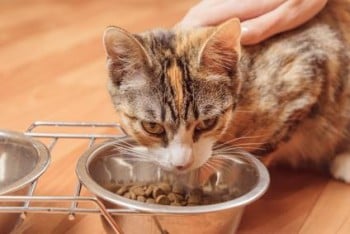
False pregnancy in cats, also known as pseudocyesis, is a state when some true pregnancy signs are present in a non-pregnant female cat. Most people have heard about false pregnancy in dogs, but a similar, though not as common, condition can occur in female cats.
False pregnancy in cats occurs when a female cat ovulates but does not become pregnant. Unlike humans or dogs, cats do not ovulate in a cycle. Cats are known as induced ovulators, which means that they ovulate only after mechanical stimulation of the vagina.
Therefore, the two most probable causes of false pregnancy in cats are:
- Mating-induced ovulation, which was sterile
- Ovulation induced by a hormonal imbalance
A third alternative is ovulation intentionally induced in a veterinary clinic. This is often done to stop the heat cycle or for other medical reasons.
Signs of false pregnancy in cats:
- Almost no signs in most cases. The cat enters the state of false pregnancy after ovulation, and hormones act as if she were pregnant, but there are no signs, or they are not observable.
- Increased appetite is the most common sign of false pregnancy, just at it is a common sign of true pregnancy. Note that cats might want to eat a lot for other reasons.
- Weight gain partly caused by hormonal activity and increased appetite.
- Nesting behavior. The female cat acts like she is getting ready for birth, creating a nest and being restless.
- Lactation is a rare sign of false pregnancy in cats but usually is the one that grabs owners’ attention after other signs have gone unnoticed.
- Other signs of true pregnancy are even rarer, but do not be surprised if any occur. You can find a list of pregnancy signs in cats here.
Treatment for false pregnancy in cats
You actually do not treat it. In most cases, it will come end in 40 days, and the heat cycle will begin again. However, if the false pregnancy was induced by a hormonal disorder, there is a high risk of it happening again. In such cases, it is advisable to spay your cat. This disorder might be inherited, so it is not advised to breed her.
This article is a part of a series about the heat cycle in cats.
